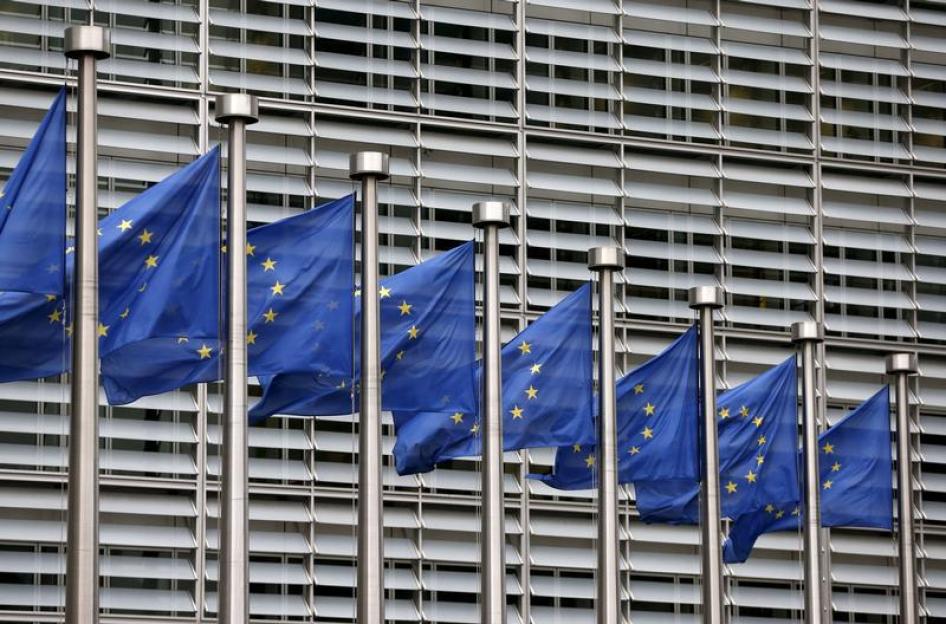Dear Ministers,
Ahead of the forthcoming EU General Affairs Council (GAC) session scheduled for 25 February, we write to you concerning the rapidly deteriorating rule of law situation in Poland, and in particular the legal and institutional crises that recent actions by the Polish government have triggered.
As Poland’s Supreme Court, government and Constitutional Tribunal are now in an open power struggle over the future of the Polish courts, judicial independence as well as Poland’s very integration in the EU legal order hang in the balance. Our organisations call on the Council to include the rule of law situation in Poland on its agenda as a matter of urgency.
Despite calls for restraint[1] and multiple sides voicing apprehension, on 4 February Polish President Andrzej Duda signed into law controversial new reforms openly defying the authority of CJEU jurisprudence and actively seeking to prevent Polish judges from applying EU law under penalty of suspension, fines, salary cuts and dismissal. This comes already in the midst of three related infringement actions, an urgent application by the European Commission for interim measures currently pending before the CJEU, and the ongoing Article 7 TEU procedure, all related to grave concerns over the independence of the Polish judiciary.
Our organisations warn against the risk that these latest reforms pose to the right of people in Poland to seek an effective remedy in Polish domestic courts, as guaranteed by Article 47 of the EU Charter of Fundamental Rights.
Absent urgent intervention, the Polish government will likely break the present impasse by waiting for the expiration of the current Supreme Court President’s term on 30 April and appointing a party loyalist to replace her, beyond which point serious prospects for reasserting judicial independence may no longer be viable, regardless of any later pronouncement of the CJEU on the matter. Considering then what is at stake and the urgency of this timeline, it is simply a misreading of the current state of play to believe that a softer or more conciliatory approach would be an effective strategy at this stage.
We therefore call upon the Council:
- to include in the agenda of its upcoming GAC session an Article 7 hearing on the situation in Poland;
- to address, following the hearing, concrete recommendations to the Polish government to immediately safeguard the independence of the judiciary;
- to commit to assessing the implementation of the recommendations in a timely manner in order to reach a final determination under the Article 7.1 TEU procedure and, should conditions warrant, move forward under Article 7.2 TEU.
We further recommend that all Council proceedings, including the adoption of any recommendations, be made public in order to allow for meaningful participation by all European institutions and civil society in this matter.
Finally, our organisations would also draw your attention to the deteriorating situation in Hungary. Smear campaigns against civil society, minorities, journalists, political opponents, lawyers and judges have intensified while the government continues to assume an increasingly uncooperative posture with respect to EU scrutiny under Article 7. Most recently, Hungarian officials further undercut the rule of law by threatening to not abide by national court decisions[2] or to execute certain judgments of the European Court of Human Rights (ECtHR).[3] This follows the adoption, last December, without any public consultation, of a new law reforming the justice system.[4] Instead of remedying the structural deficiencies within the judiciary in line with expert recommendations,[5] the new law undermines independent scrutiny in cases related to administrative authority, including politically sensitive matters, by channeling them before the captured Constitutional Court, further tightening the government’s grip on an already imperiled judiciary.
It is crucial that the Council continue to hear the Hungarian authorities on all the concerns set out in the European Parliament’s report, taking into account the lack of any adequate response so far on the part of the Hungarian government. As outlined above with respect to Poland, future action by the Council should lead to concrete recommendations to the Hungarian authorities, progressing in turn to the determination referred to in Article 7(1) TEU.
To date, discussions in the Council under the Article 7 procedure have been neither regular nor structured, and have failed to address the substantial issues that warranted the procedure’s activation with regard to both Poland and Hungary. As recently resolved by the European Parliament: “The failure by the Council to make effective use of Article 7 continues to undermine the integrity of common European values, mutual trust and the credibility of the European Union as a whole.”[6] We submit that the ongoing failure by the Council to make effective use of Article 7 is in fact enabling continued divergence from the values set forth in Article 2 TEU.
We continue to stand ready to assist with any further information you may require in the preparation of all further action on these issues.
Yours Sincerely,
Amnesty International
International Federation for Human Rights (FIDH)
Human Rights Watch
International Commission of Jurists
Open Society European Policy Institute
Reporters Without Borders (RSF)
[1] Council of Europe, Venice Commission, CDL-PI(2020)002-e Poland - Urgent Joint Opinion on the amendments to the Law on organisation on the Common Courts, the Law on the Supreme Court and other Laws
[2] https://hungarytoday.hu/govt-finds-court-ruling-on-school-segregation-of-romas-unfortunate-refuses-to-pay-compensation
[4] Analysis by the Hungarian Helsinki Committee, January 2020: https://www.helsinki.hu/wp-content/uploads/HHC_Act_CXXVII_of_2019_on_judiciary_analysis_2020Jan.pdf
[5] Council of Europe, Venice Commission, CDL-AD(2019)004-eHungary - Opinion on the law on administrative courts and the law on the entry into force of the law on administrative courts and certain transitional rules (Venice, 15-16 March 2019)
[6] European Parliament resolution of 16 January 2020 on ongoing hearings under Article 7(1) of the TEU regarding Poland and Hungary (2020/2513(RSP))









